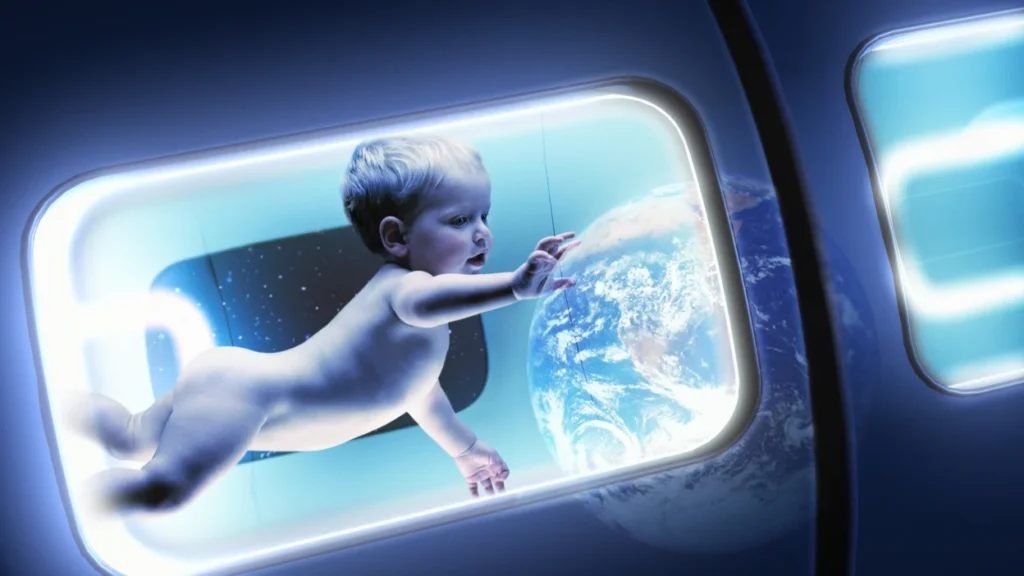As human space travel moves closer to long-duration missions and potential colonization of the Moon or Mars, the possibility of space birth—a baby being conceived and delivered beyond Earth, is no longer just science fiction. Scientists around the world are beginning to explore what it would truly take to support pregnancy in space, and the challenges it would bring.
While astronauts have spent extended time on the International Space Station (ISS), no human has ever been pregnant in space, let alone given birth. But with missions to Mars on the horizon and private space tourism booming, researchers believe it’s time to start asking serious questions: Can a human safely conceive, carry, and give birth in space?
The Microgravity Challenge
A major hurdle is microgravity—the near-weightless environment experienced in space. During pregnancy, gravity on Earth plays a critical role in fetal development, helping to shape the baby’s orientation, bone structure, and internal organ growth. In space, microgravity pregnancy challenges could include muscle atrophy, abnormal bone development, or impaired blood flow between mother and fetus.
Animal studies have shown mixed results, with some species unable to reproduce or carry healthy offspring in zero gravity. Human reproduction under such conditions is still untested.
Radiation Risks and Fetal Health
Another serious risk is cosmic radiation exposure. Earth’s magnetic field protects us from high-energy radiation, but outside this shield—on the Moon, Mars, or deep space cosmic radiation effects could severely harm a developing fetus. Prolonged exposure may increase the risk of birth defects, developmental delays, or miscarriage.
The Challenges of Childbirth in Space
Even if conception and pregnancy succeed, childbirth in space poses extreme difficulties. Delivering a baby in microgravity could lead to unexpected complications. Medical tools are designed to function under Earth’s gravity, and emergency procedures like C-sections would be harder to perform without proper infrastructure or trained obstetricians.
Experts emphasize the need for artificial gravity environments and advanced medical care facilities before birth in space can be considered safe.
What If a Baby Is Born in Space?
The idea of a baby in space also opens the door to social, legal, and psychological questions. Would a space-born human have Earth citizenship? How would growing up in a confined, artificial habitat affect their development and identity?
While no space agencies currently plan for pregnancy during missions, organizations like SpaceBorn United are exploring future experiments to test conception and embryo development in orbit.
While the concept of pregnancy in space and space birth still lies in the realm of research, it’s rapidly becoming a scientific priority. As humans aim to become a multi-planetary species, the ability to reproduce beyond Earth will be key to survival. But before welcoming the first baby in space, scientists must overcome major hurdles related to microgravity, fetal development, radiation, and safe childbirth.












More Stories
Centre Steps Up Health Response: States, UTs Asked to Strengthen Clinics for Air Pollution-Related Diseases
Neurologist Warns: These 3 Everyday Habits Could Be Silently Damaging Your Brain
Fitness Trainer Reveals the Body’s Most Underrated Weapon Against Diabetes—‘Muscle Can Soak Up Glucose Even Without Insulin’